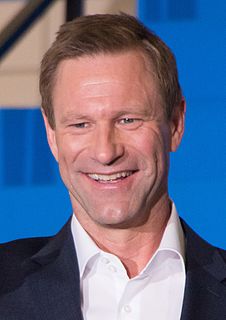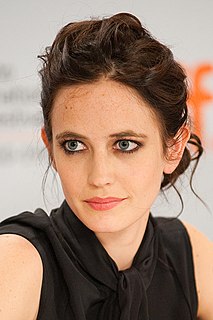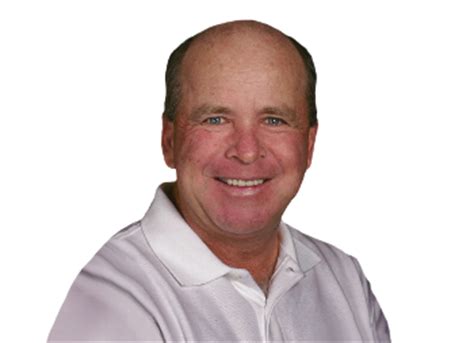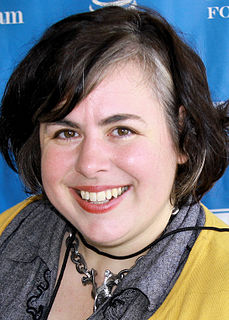A Quote by Aaron Eckhart
You never really know as an actor; it's completely out of your control, in terms of editing, and music, and film stock, shot selection, and what takes they use.
Related Quotes
As an actor, you are sort of only in charge of yourself. All you can really control is your performance. You don't know what they're going to do with it in the editing room, what they're going to cut out, which take they're going to use. You know, your control is very limited. As a director, it's ultimately your piece. You have a lot more responsibility, but you also have a lot more creative control. It's scary, but also liberating in a way.
You never know when you're taking a job, ever... but you try to take good scripts. That's all you can do as an actor - take the best thing available. Even then, it's not [really] in your control. Certainly not in film and TV, because there are so many other elements. You just have to take control of your own performance.
In the theater, you're so much more in charge as an actor. For better or for worse, you know what the audience is seeing. But you can be acting your socks off on film, and then you see the movie, and the camera is on the other actor, or they've cut out the lines you thought were significant, or they've adjusted the plot. So much of it is out of your control.
Certainly what constitutes a stage actor, what constitutes a film actor, I don't even know what that is. And both things are very accurate, in a sense. In terms of people's needs to concentrate on race, I wonder if it's completely necessary, but it's not something that is so dynamically relevant to me that I feel it should be one thing or another.
There was no actually stock footage in "Medium Cool." I wrote the script. I wrote the riots. And I integrated the actors in the film in the park during the demonstrations. But nowhere was it like we had stock footage and then later, in editing, integrated it into the film. It was all done at the time.
One of the first decisions I made, as the director of "Hide and Seek," was that our film would be silent and use underscoring of original music that I was planning on composing. The decision was mostly predicated on knowing how time consuming the editing of dialogue can be and given the various locations we shot in, I didn't want to worry about having to mix room tones in such a short amount of time.



































